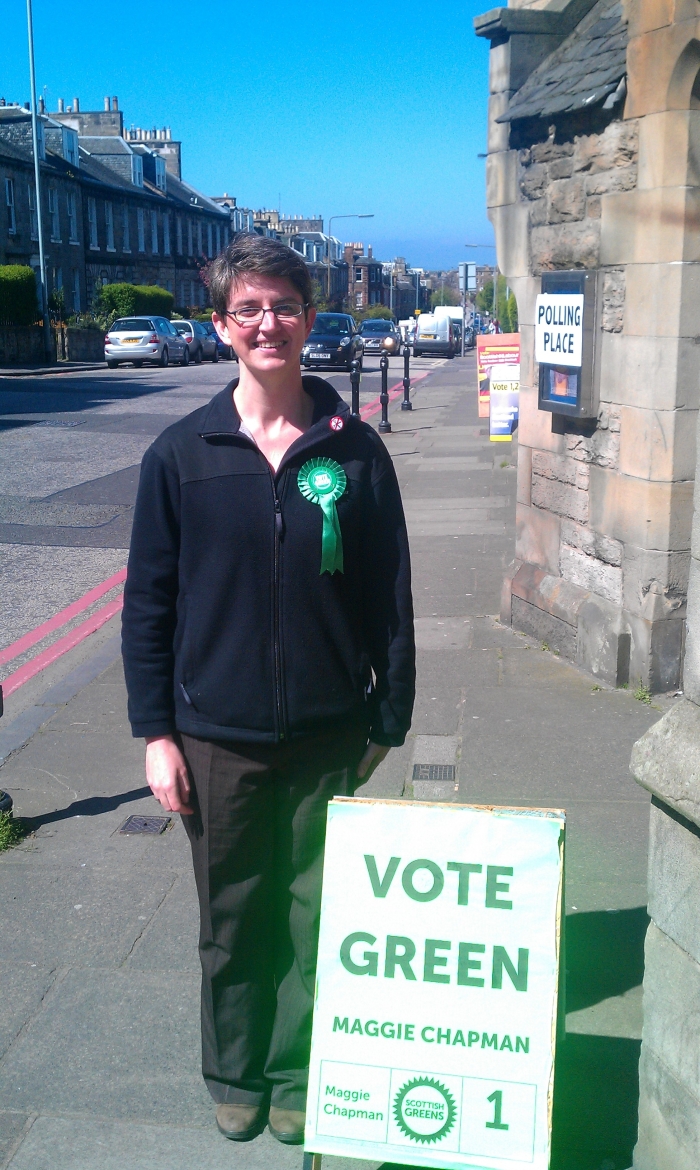Today was Budget Day in the City of Edinburgh Council, and this year was different to the last five council budget days. For starters, there were no deputations to be heard before we started the debate (more on this later). And secondly, I was not leading the Green Group as the finance spokesperson, having passed on this joy to my colleague Gavin Corbett who was at the helm – and what a fine job he has done!
We have been clear about our priorities for budget discussions over the last few months: firstly, we have to mitigate the impact of the odious welfare reforms being foisted upon us by a distant and disconnected set of self-interested politicians south of the border. We need to invest in warmer homes and better schools. At a time when nearly one in four households suffers from fuel poverty, we cannot afford to ignore this. And we have to enhance public services and build bridges with an Edinburgh public that has come to see the council as high-handed and autocratic. Details of exactly how we would have done these things can be found on the Council’s website.
The Labour/SNP Coalition accepted two of our proposals: to invest £100,000 in income maximisation services for people on benefits and to reinstate £50,000 towards adaptations that allow disabled and older people to stay in their own homes. Sadly, they did not accept our argument for additional resources for employability services, focussing on affordable child-care for lower income families who are accessing training or education. Nor did they welcome our planned investment of £10million over 3 years for accelerated fuel poverty projects or our £389,ooo Town Centre fund, to create more accessible and pleasant environments for residents, workers and shoppers. And several councillors scoffed at our desire to transform, quite radically, the ways in which the Council does its business.
An us and them culture still exists, with residents and community groups not having sufficient opportunities to participate in the way their council functions. There have been some improvements on this front, but we have a long way to go to reinvigorate local democracy. So we want to invest in making council processes and communications more open and we want to support more people to engage with decision making structures, either through devolving budget processes or through direct contributions to policy planning and strategy development. We have to engage with our communities in how Edinburgh is run if we expect them to truly participate in the full round of the life of this city.
We want to ensure that we make the best use of the skills and expertise of our own employees, and we want to improve the detailed scrutiny of council processes. All this will lead to increased trust, and therefore increased engagement in our council from all stakeholders; residents, community groups, voluntary organisations, local businesses, and, perhaps even opposition councillors!
There was much ado about our proposals to increase parking charges for the city centre – several councillors were spreading misinformation (surely not?!) saying we wanted to charge £5 an hour. This is NOT true. Our proposal was to charge £3.50 an hour – 50pence more than the Coalition’s own proposed increase. This figure, costed by the officials, and taking into account projected reduction in demand, would achieve several things: firstly, it will increase turnover on spaces, which is good for retailers; it would allow for more disabled bays, which community groups and equalities campaigners want; and the reduced number of vehicles in the city centre will reduce congestion and air pollution – good for the health of all of us.
There were some entertaining moments too; Eric Milligan is always good value, and today he was spot on – it is a travesty that local authorities do not control their own tax raising powers (thanks to the straight-jacket imposed by the Scottish Government) – and Eric gave us an eloquent history lesson about his nearly 40 years in local government. The LibDems tried to convince us that they were good at keeping their promises (er, tuition fees, anyone?); but it is no surprise that the three of them are still somewhat sore about their current position in the Chamber (14 seats down from the last election). And the Tories don’t seem to recognise a balanced budget when they see one – I don’t think they’ve realised there are calculators on modern mobile phones! There are also several councillors whose memories appear to be failing them; the green group has engaged with the budget process in the past, but we think the process leaves a lot to be desired.
So, an interesting day. The absence of deputations is not, I don’t think, because Labour is no longer in opposition and therefore encouraging the Unions to complain about conditions. It does, I believe, reflect the more open and conciliatory approach to this year’s budget process. Yes, there is a long way to go yet, and I look forward to participating in next year’s financial planning, which I believe must start tomorrow.
